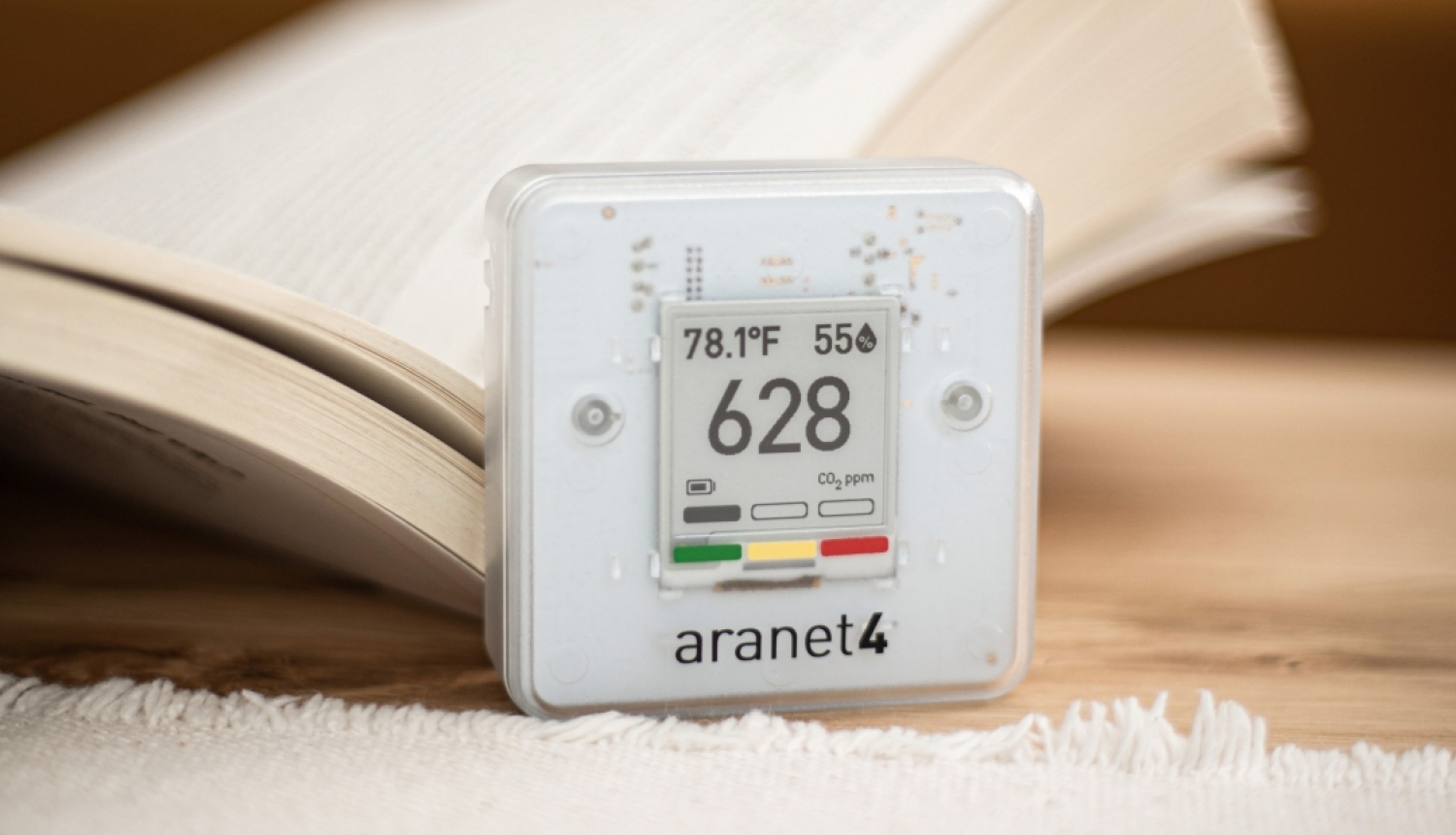The trade mission to the US, led by the President of Latvia, Edgars Rinkevics, and the Minister of Economics, Viktors Valainis, from September 16 to 24, has garnered significant interest from Latvian technology companies. The mission aims to reinforce cooperation with US investors, network with potential partners and customers, and also explore trends and opportunities in the US market. A notable example of success is SAF Tehnika, which has effectively deployed its Aranet air quality monitoring system in over 50 schools across California.
SAF Tehnika is one of the leading manufacturers of telecommunications equipment in Latvia, operating in more than 130 countries around the world. The “Aranet” system developed by the company provides innovative wireless sensor solutions to monitor air quality. These sensors help monitor and improve the indoor environment, including air quality, temperature, humidity and CO2 levels, which is especially important in schools and other public buildings.
The technological advantages provided by “Aranet” have allowed the company to take part in the California Schools Healthy Air, Plumbing and Efficiency Program (CalSHAPE). This is a massive project implemented by the state of California to ensure a healthy educational environment in schools, especially n light of the lessons learned during the Covid-19 pandemic. With a budget of over one billion dollars, the majority of the program’s funds are being used to update school ventilation, air conditioning and heating (HVAC) systems, but part of the funding is also being invested in air quality monitoring, including controlling CO2 levels.
We have been working with US schools and the CalSHAPE program in particular for more than 3 years already and over this time we have managed to make “Aranet” one of the most recognised brands in the US for monitoring indoor air quality which is used by hundreds of thousands of customers every single day. Implementation of the CalSHAPE program has just started, so we have a lot of work ahead for the next couple of years. I am pleased that US customers appreciate and love innovative products created in Latvia,” Janis Bergs, Vice-President for Sales and Business Development at SAF Tehnika and President of SAF North America, explains.
“Aranet” wireless sensors provide constant monitoring of CO2, temperature, humidity and air pressure, allowing schools to adjust their systems to ensure healthy and clean air. The data collected by the sensors is transmitted in real-time to a centralised management system allowing schools to automatically adjust their HVAC systems as soon as CO2 levels or any other indicator exceeds a set threshold. Controlling CO2 levels is important because excessive levels can have an adverse effect on students’ cognitive function, concentration and memory. “Aranet” sensors allow for monitoring of CO2 levels to keep them within an acceptable range thus promoting students’ ability to concentrate and achieve their best academic results. Furthermore, improving air quality in schools reduces the spread of respiratory infections, including Covid-19 and the flu, making the school environment safer for students’ health.
In addition to health benefits, the “Aranet” technology also helps schools reduce their energy consumption and improve sustainability which is in line with the environmental protection and energy efficiency targets set by the state of California. The success of “Aranet” in the US market has also been recognised at a national level, with “Aranet” recently being mentioned in relation to the White House initiative “Sustainable Healthy Schools”. The “Aranet” technology is cited as an example of a sustainable and innovative approach to improving indoor air quality in schools.
Although “Aranet” air quality monitoring systems are widely being used in education institutions and other public buildings, they are versatile and can be used in a range of different sectors, including horticulture (gardening), health care and manufacturing. For example, in horticulture “Aranet” sensors help optimise conditions for growing plants by monitoring the temperature, humidity and soil condition, while in health care these technologies ensure a safe environment for patients and staff by reducing risk of spreading infections.
Moreover, SAF Tehnika is currently actively developing radon monitoring solutions which are crucial for people’s safety in regions with increased concentrations of this dangerous gas. Radon monitoring sensors are an “Aranet” innovation, for which the company sees a broad application potential. Radon is a naturally occurring radioactive gas which forms in the Earth’s crust as a result of uranium decay and it can accumulate in closed spaces. Prolonged exposure to increased levels of radon is one of the main causes of lung cancer, therefore monitoring it is of crucial importance. Radon levels is a problematic issue particularly in regions with uranium-rich soil, such as the USA, Canada, Northern Europe and some regions in Central Europe, as well as in parts of Scandinavia and Latvia.
SAF Tehnika is a leading technology company in Latvia which has been developing innovations in wireless communications for 25 years already. The company exports its products to more than 130 countries around the world. One of SAF Tehnika’s spotlight products are the “Aranet” monitoring solutions which have cemented their market position not only in the European Union, Asia and South America, but also the USA which is one of the most important consumer markets for this technology.
Information prepared by
LIAA Communication and Information Department
E-mail: prese@liaa.gov.lv
T. (+371) 29725674



